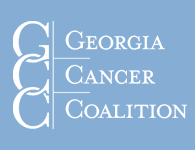News Release: Emory Healthcare, Research, School of Medicine, School of Public Health, Winship Cancer Institute
Jul. 21, 2009
Georgia Cancer Coalition Selects Emory Researchers as Distinguished Cancer Scholars

Seven Emory University cancer researchers are among the 19 selected as Distinguished Cancer Clinicians and Scientists by the Georgia Cancer Coalition for 2009-10. Emory’s new Distinguished Cancer Scholars include:
- Carla J. Berg, PhD, assistant professor, Behavioral Science and Health Education, Rollins School of Public Health
- Lawrence H. Boise, PhD, professor, Hematology and Medical Oncology
- Baowei Fei, PhD, assistant professor, Center for Systems Imaging, Department of Radiology
- Tobey J. MacDonald, MD, associate professor, Hematology and Medical Oncology/Bone Marrow Transplant, Department of Pediatrics
- Joel H. Saltz, MD, PhD, professor, Pathology, and director of the Emory Center for Comprehensive Informatics
- David M. Schuster, MD, assistant professor, Nuclear Medicine and Molecular Imaging, Department of Radiology.
The Coalition selects scientists engaged in the most promising areas of cancer research. Emory now has 48 active Distinguished Cancer Scholars.
“We are very proud of our recently designated Distinguished Cancer Scholars,” says Brian Leyland-Jones, MD, PhD, director of the Emory Winship Cancer Institute. “Our partnership with the Georgia Cancer Coalition is an important component of our mission to advance cancer research and treatment. We very much appreciate the GCC’s vision and support, which enables us to develop groundbreaking research and to foster collaboration with cancer physicians throughout Georgia in offering patients the benefits of this research.”
Begun in 2001, the Georgia Cancer Coalition’s Distinguished Cancer Clinicians and Scientists program is an investment in Georgia’s future as a national leader in cancer control. The Scholars’ history of grants, publications and patents as well as their potential for attracting future funding is considered. In fiscal year 2008, Georgia Cancer Coalition Distinguished Scholars were responsible for securing $47 million in privately and federally funded research grants to the state of Georgia; over the program’s eight-year history, scholars have generated more than $200 million in funding.
Scholar selection is based on how the applicant’s research relates to the goals of the Coalition, the research priorities of the National Cancer Institute, and the strategic plan of the sponsoring institution. Applications are reviewed by a scientific review committee and an advisory review committee appointed by the Coalition in cooperation with Georgia’s research universities. Members rank candidates according to predetermined scientific and technical criteria.
“The National Cancer Institute has identified areas of discovery that hold promise for making significant progress against all cancers says Bill Todd, president and chief executive officer of the GCC. “The Distinguished Cancer Clinicians and Scientists program is the cornerstone of the Georgia Cancer Coalition’s efforts to advance scientific discovery into the prevention, treatment, causes, and cures of cancer. These scientists and clinicians play an important role in positioning Georgia as a national leader in cancer research.”
The Georgia Cancer Coalition is an independent, not-for-profit organization that unites government agencies, academic institutions, civic groups, corporations and health care organizations in a concerted effort to strengthen cancer prevention, research and treatment in Georgia, with the ultimate goal of making Georgia one of the nation’s premier states for cancer care. The mission is to reduce the number of cancer-related deaths in Georgia. The Coalition is the first of its kind in the nation and is fast becoming a national model. For further information, the official website is www.georgiacancer.org.
As Georgia’s first and only National Cancer Institute Designated Cancer Center, Emory University’s Winship Cancer Institute serves as the coordinating center for a vast array of resources in medical, surgical, radiation oncology, diagnostic imaging, and the subspecialties of cancer care throughout Emory University.
Emory Winship is part of Emory’s Woodruff Health Sciences Center, Emory Healthcare and Emory University. Researchers and clinical members of the cancer center are faculty at Emory or at partner institutions such as Georgia Institute of Technology. Faculty members collaborate with national and state agencies, including the U.S. Centers for Disease Control and Prevention and the American Cancer Society. Emory Winship also is enhanced by its close relationship with Emory’s own School of Medicine, Rollins School of Public Health, and the Nell Hodgson Woodruff School of Nursing, all with strong cancer related programs.
###
The Robert W. Woodruff Health Sciences Center of Emory University is an academic health science and service center focused on missions of teaching, research, health care and public service. Its components include schools of medicine, nursing, and public health; Yerkes National Primate Research Center; the Emory Winship Cancer Institute; and Emory Healthcare, the largest, most comprehensive health system in Georgia. The Woodruff Health Sciences Center has a $2.3 billion budget, 17,000 employees, 2,300 full-time and 1,900 affiliated faculty, 4,300 students and trainees, and a $4.9 billion economic impact on metro Atlanta.
Learn more about Emory’s health sciences:
Blog: http://emoryhealthblog.com
Twitter: @emoryhealthsci
Web: http://emoryhealthsciences.org
